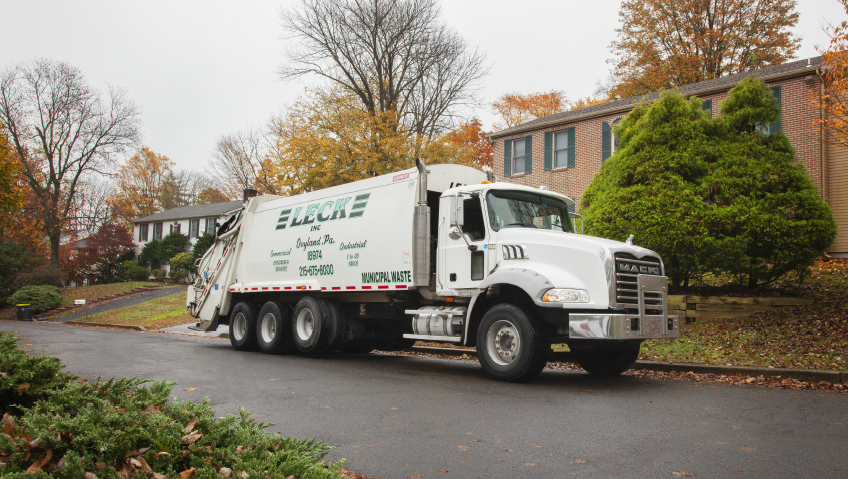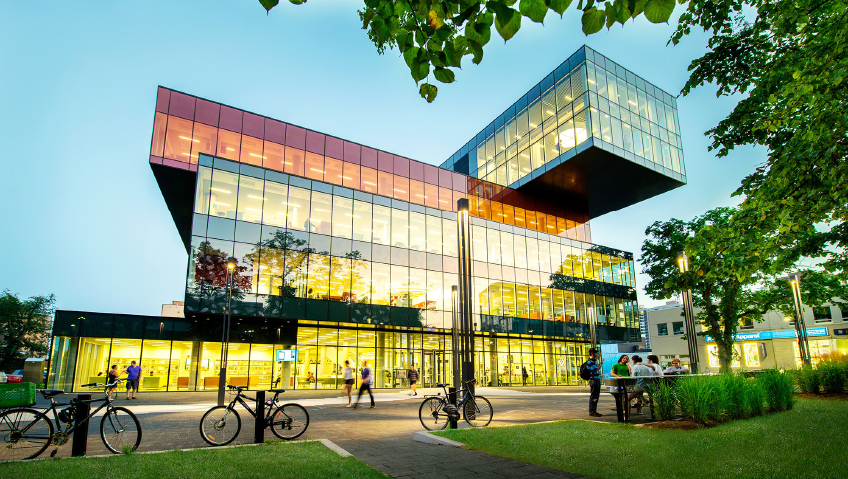Leck Waste Services has been family-owned-and-operated since 1971. Launched by a determined, entrepreneurial-minded father and son team, the once humble startup now boasts 86 employees and 60 trucks operating daily throughout a sizable portion of Pennsylvania. The company provides a full suite of residential, commercial, and municipal services as well as complete compactor services, portable toilets, and shredding services.
Leck Waste Services has adopted market-leading technology to maintain an edge in the industry. “The integration of data and technology over the last five years has allowed us to scale the company at a rate averaging about 22 percent growth year over year, over the last three and a half years,” says President and Owner Jason Leck. Without this integration, “I don’t think we would have been able to scale the way we did. We went from one operating location to three operating locations.”
Notably, much of this expansion took place during the pandemic, when the industry was facing substantial challenges. “We’re a technologically-driven waste company, which has allowed us to make a lot of educated decisions,” Leck says of the continued success during high-pressure times.
In 2018, Leck Waste Services partnered with Soft-Pak®, a complete software solution for waste haulers, and 3rd Eye®, a leading fleet management tool, camera and monitor system, collision warning system, and data collection system. “All of those technologies tied together and really transformed how we interacted as a company, from operations and maintenance to safety and customer service,” Leck says.
“We have much better insight in looking at what we’re doing on a daily basis… and how we are delivering on all those things in the industry because of those partnerships that we invested in through Soft-Pak® and 3rd Eye®.” The increased insight and efficiency has meant that the company was able to “to generate revenue that we never could generate prior to having that technology in the truck.”
The camera system gives “a deeper insight into how we are servicing customer locations because of positive service verification with videos,” Leck explains. “Now, we have a recording and a picture of every service that is occurring… Our customer service department is able to be more proactive versus being a reactive customer service department.”
Issues related to overages, blocked accounts, and false damage claims have all been relegated to the past. “We saw we were paying for a lot of customers claiming that we were damaging property or doing things on site, and probably 95 percent of those types of claims and calls against the company have gone away since we instituted the camera system in the trucks,” Leck says.
Safety is another key area that has seen dramatic improvements through the company’s adoption of the technology. “One of the things 3rd Eye® does for us is send us alerts if the driver is doing something unsafe behind the wheel, whether it’s a hard brake, if they’re on the cell phone, not wearing their seatbelt, those types of things,” says Director of Health and Safety John Andel. “When we went live with the system we were averaging about eight of those alerts per month through the first year.”
Since that time, the drop in safety alerts has been dramatic, particularly compared to the number of employees since that has increased during the same period. Four years after the implementation of the system, the company has “basically doubled the size of our workforce, and we’re averaging one to two [safety alerts] a month,” Andel says.
Management is not the only fan of this monitoring technology—employees have welcomed it as well. “Drivers have been very receptive to it,” Andel says. “We’ve taken a very hands-on coaching approach with it, trying to build and grow talent. It’s made us safer as a company. It’s also improved our retention as a company. We don’t have the manpower issues that a lot of companies in our industry have. We’re hiring due to growth, but we don’t have the turnover.”
Leck reiterates the effectiveness of using technology as a teaching tool to support employees. “We decided that we were going to use the onboard cameras as a way to make best-in-class operator drivers. We used it, instead of as a disciplinary tool, as a way to actively coach for better driving habits. That doesn’t mean that people don’t make mistakes. But we looked at it as, if we recognize what the mistake is, how can we use that information to coach our drivers and our employees to not continue to make those kinds of mistakes and to improve what they’re doing?”
The price of insurance has become a substantial challenge in the industry and Leck Waste Services is using technology and captive insurance to reduce the burden. “It is a hard insurance market,” Leck says. “They’re seeing premiums rise 20 to 25 percent year-over-year. We’re seeing less than half of that increase with National Interstate Wastecap because we were able to drive safety as one of our core values and culture here at Leck. It really just transformed how [we operate].”
This coaching and increased safety has led to substantial cost savings for the company. “There’s a direct correlation between how we performed and money coming back,” says Leck. “At the end of the day, we could be looking at a couple hundred thousand dollars’ worth of premiums that are coming back to the company in order to allow the company to grow, and that’s all directly related to the technology that we invested in.”
In May of 2021, Leck Waste Services acquired a transfer station, the first step in meeting goals. “The main focus is going to be post-collection growth,” Leck says. “We’ve always been a collections company and the first piece of the post-collection growth strategically for the company was to acquire a transfer station.”
Currently, Leck Waste Services is in the process of modifying the newly-acquired transfer station to increase tonnage. Jumping through the hoops for permit renewal in 2024 is the current emphasis, but “ultimately, down the road, we’d like to be able to have some sort of recycling MRF facility to be able to process all of [the additional waste] that we’re expecting,” Leck says. An MRF or materials recovery facility collects and separates recyclable materials and prepares them to be sent to manufacturers that use recycled materials in their production.
The new transfer station has expanded the company’s potential for additional waste services. “Up to this point, we were mainly a solid-waste collections company, and through our acquisition that we did last year of the transfer station, we now have taken on more liquid waste hauling, septic and portable toilets, and that side of the business,” Leck says. “And I do foresee that, in the future, that would be something that we are looking to scale up in operations because it’s a lucrative business if it’s operated properly.” He predicts the potential to be “double-digit growth on that side of the business.”
Armed with the latest technology—and applying its potential to the fullest—the company is positioned for future success. Add to this, an acquisition with plenty of growth potential, as well as a strong track record as a family-owned and operated business, and it is clear that Leck Waste Services has a bright future ahead.






